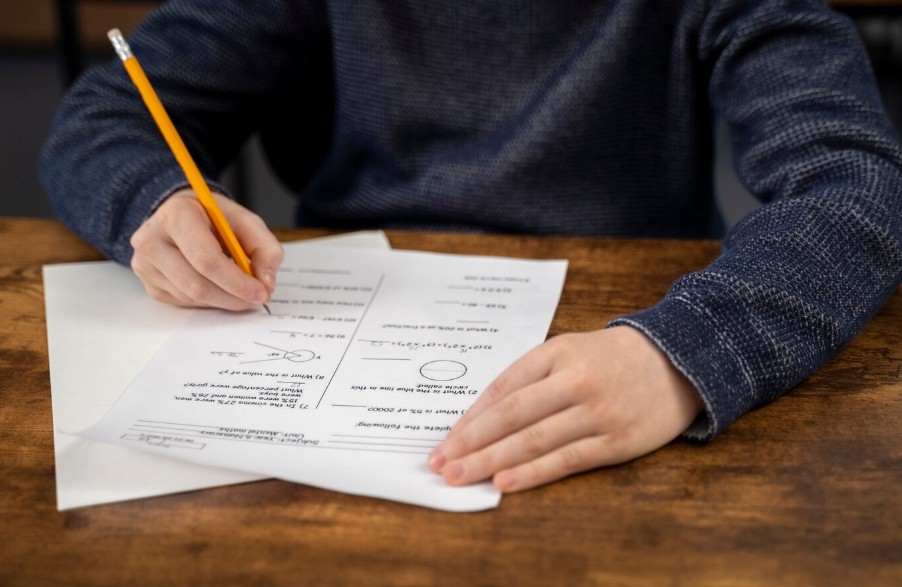The moment you receive your GCSE results can be exciting or nerve-wracking. However, if the grades don’t align with your performance expectations, it’s important to take a step back and check your GCSE results day experience carefully. If something feels off, know that there are steps you can take to appeal the decision. This guide will walk you through the process, explaining how to approach it clearly and confidently. Whether it’s a marking error or another concern, this guide provides a straightforward roadmap to ensure your results are reviewed fairly.
Can You Appeal Your GCSE Results?
Yes, you can, but the process is specifically designed for certain scenarios. GCSE result appeals are designed for cases where you believe errors were made during marking, grading, or administration. It’s worth noting that submitting an appeal could result in your grade increasing, staying the same, or even being lowered, so careful consideration is essential before proceeding.
Common Reasons for Appeal
- Marking Errors – Mistakes in evaluating your answers or adding up marks correctly.
- Administrative Mistakes – Such as incorrect data entry for your grades.
- Exam Day Issues – If mitigating circumstances like illness affected your performance.
Before filing an appeal, it’s critical to discuss your concerns with your school or exams officer to understand the implications.
Key Deadlines You Should Know
The appeal process has strict timelines, and missing these deadlines can result in losing your opportunity to appeal. Here’s what you need to remember:
- First Step (School Discussion): You should raise your concerns with your school or exam center as soon as possible after results day.
- Deadline for Review Requests: The deadline to request a review of results typically falls within two to three weeks of receiving your grades.
- Formal Appeal Deadlines: If the review doesn’t resolve the issue, formal appeals often have additional deadlines, which vary by exam board.
It’s essential to confirm the exact dates with your school or exam board to stay on track.

Discuss Your Concerns with Your School
The first thing to do if your GCSE grades differ from your expectations is to speak with your teacher or exams officer. They can help you analyze your results and advise whether appeal your GCSE results is a reasonable course of action.
Clarifying Your Score
During this stage, your teacher can go over how marks were allocated. For instance, many students believe errors occur in numerical papers. If you’re concerned about a mathematics result, this discussion clarifies any confusion. Your teacher can easily explain mathematical concepts, helping you understand how scores are assigned and whether calculations are correct. This can save you the time and cost of submitting a formal review unnecessarily.
If concerns persist after this step, it may be time to request a formal review of marking.
Submit a Review of Marking (RoM)
When informal discussions fail to resolve your concerns, your school or exam center can formally request a Review of Marking on your behalf. This step is a re-check of your exam paper to ensure accuracy.
How the Review Process Works
- Re-Assessing Marks: The exam board’s professionals will verify that all your answers were marked according to their guidelines and that no marks were missed.
- Adding Up Marks: The review ensures that there are no errors in adding up marks across all questions.
Bear in mind, a review is not equivalent to a re-grade and doesn’t involve changing the initial interpretation of your work unless evident errors are found. You get here our more educational blog.
Costs & Refunds
There’s often a fee for a Review of Marking, although this varies by exam board and may be refundable if an error is corrected and your grade is changed. Results from reviews are usually provided within two to three weeks.
Review the Outcome
The outcome of the marking review will fall into one of three categories:
- Your Grade Improves: If an error is identified, your grade will be adjusted accordingly.
- Your Grade is Unchanged: If no issues are found, your grade remains the same.
- Your Grade Lowers: If the review discovers that you were awarded more marks than you earned, your grade could decrease.
Before opting for a review, it’s worth considering this last possibility carefully.
If the review itself didn’t address your concerns, a formal appeal may be your next step.

Submit a Formal Appeal
The formal appeal process exists for situations where you believe the marking review didn’t address your concerns adequately. It’s an escalation step that examines whether the exam board followed its procedures correctly.
Grounds for Formal Appeal
Formal appeals can address issues such as:
- The exam board didn’t follow appropriate procedures.
- Special circumstances weren’t considered appropriately.
- New evidence has come to light that impacts the review.
How to File the Appeal
Most formal appeals are filed through your school or exam center. They’ll compile evidence to support your case and submit it to the exam board. Independent candidates may need to directly contact the board for guidance on filing a formal appeal.
What If You’re Still Unsatisfied?
If the formal appeal doesn’t result in a satisfactory resolution, you have further options. You can request an independent review, where unbiased professionals assess whether the exam board handled your case properly. Alternatively, you may escalate your issue to the Office for Qualifications and Examinations Regulation (Ofqual), which oversees exam boards in England.
Keep in mind that these final steps can be time-consuming, so remaining informed and responsive throughout the earlier parts of the process is crucial.

Additional Tips for Success
- Stay Organized: Keep copies of all correspondence, forms, and evidence you collect.
- Communicate Clearly: Be polite and concise when explaining your concerns to your school and the exam board.
- Act Quickly: Missed deadlines can significantly impact your ability to progress with an appeal.
- Seek Support: Consult with your teachers, parents, or mentors for additional advice or reassurance.
By staying calm and following the steps outlined in this guide, you can ensure that your results are reviewed thoroughly and fairly.
Frequently Asked Questions (FAQs)
Will An Appeal Affect University or Sixth Form Placement?
Universities and institutions are generally aware of issues caused by delayed results during appeals. Communicate with admissions staff early to resolve any potential concerns about delayed grade confirmations.
Are There Any Risks?
Yes. Your grade could decrease if errors initially worked in your favor. It’s important to understand this and make informed decisions.
Is The Appeal Process Expensive?
Costs vary by exam board and are often subsidized or covered by your school. You may even receive a refund if your appeal results in a grade change. You get more educational blog here.
Final Thoughts
Appealing your GCSE results doesn’t need to be intimidating. By following this step-by-step guide, consulting with your school, and knowing your rights during the process, you can approach this challenge with confidence. Remember, the goal of appealing isn’t just to change results it’s to ensure fairness and accuracy in how your achievements are recognized.



